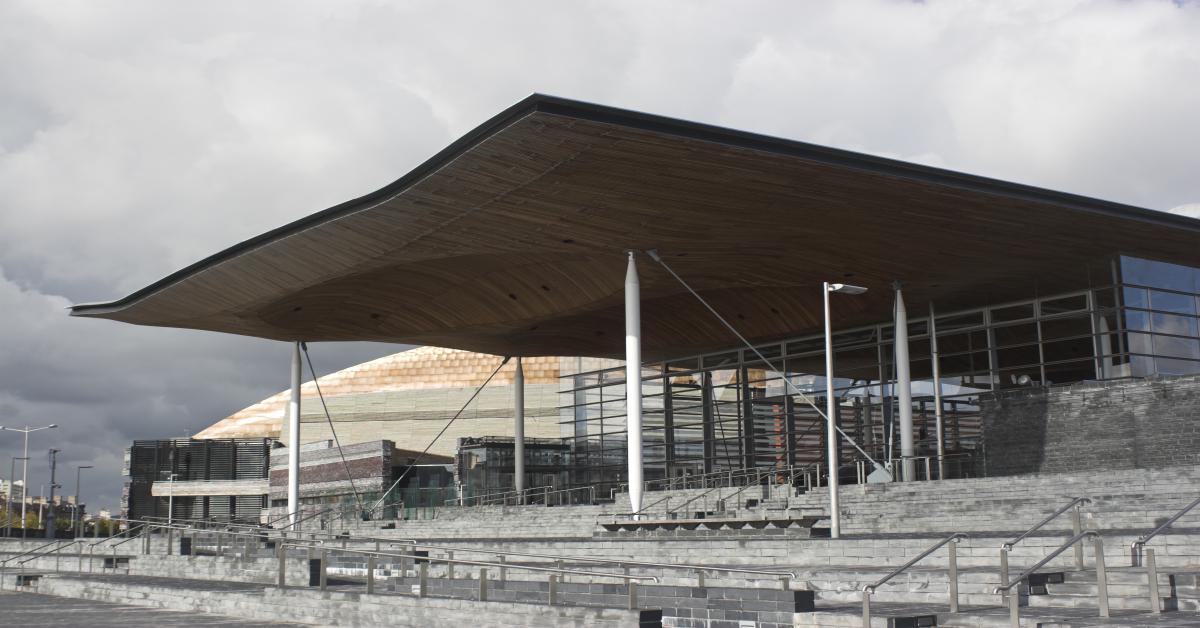With the 2021 Senedd (Welsh Parliament) election over, NRLA members are being urged to write to their Members of the Senedd (MSs) to promote NRLA Wales campaign calls and their own experiences. You can do this through downloading our editable letter and sending it to your constituency and four regional MSs.
NRLA Wales Campaigns
Increasing demand for housing and rising property prices have seen more and more people look to the PRS for a home. With this increase in demand comes an increase in scrutiny, bringing wholesale changes to the way people rent in Wales. Some of these are welcome – indeed long overdue. However, the rate of change is taking its toll on landlords, with four major pieces of legislation introduced in the last six years alone. While landlords have complied with these, to meet other and future challenges, there are more steps government can take to help meet shared goals. Only when the PRS is regarded as part of the solution to the housing crisis can landlords and tenants prosper. The coronavirus pandemic has highlighted the importance of the PRS in providing the homes Wales so desperately needs and NRLA Wales is committed to working with government, and all of those parties and politicians seeking to represent local communities, to shape legislation that benefits both landlords and tenants while improving standards across the sector. We believe this can happen by:
1. Streamlining licensing
Rent Smart Wales (RSW) and Fitness for Human Habitation (FFHH) obligations require landlords to meet the highest of standards, meaning there is no need for councils to introduce local licensing schemes that often duplicate many conditions and increase the cost of compliance. These superfluous local schemes should be abolished, with any beneficial features and safeguards incorporated into RSW and FFHH. This will reduce costs and bureaucracy for landlords, meaning savings can be invested in improving the property and maintaining rent levels for the tenant. Furthermore, there is a need to establish greater transparency and clear accountability for an organisation as large and powerful as RSW. This should include:
- Producing a public annual evaluation and performance report
- Direct scrutiny by the Senedd
- Much greater clarity between operational and policy decision making and functions, clearly defining where responsibility lies for each; and
- Establishing an independent body with oversight of RSW, accountable to Welsh Ministers
2. Supporting landlords and tenants
Homelessness is a growing issue and as vulnerable people become increasingly dependent on the PRS, privately rented households need to be given the same support as those in social housing. This can be offered by:
- Providing help for those with short-term problems and support-needs that can affect their ability to sustain a tenancy
- Funding Landlord Support Officers to help tenants stay in their homes
- Adding anti-social behaviour to the list of mandatory grounds for repossession.
We also believe the introduction of a new tenant passport would help both landlords and tenants. The new ‘passport’ would allow a landlord to access live data on a prospective tenant, including credit ratings, employment status, and references to establish whether they would be likely to be able to sustain the offered tenancy and potentially identify future support needs. It could also allow tenants to pass their existing deposit on to their new landlord when they move home, without having to raise a ‘second’ deposit before their first one has been returned.
3. Improving homes
The Welsh Government should commit to boosting the energy efficiency ratings of PRS homes and fund the installation of large-scale adaptations and safety improvements. An important first step towards this would be to match, or better, the green energy support schemes of other British nations, particularly the Green Homes Grant. This will ensure Wales does fall behind the rest of the UK. Additionally, local authorities should liaise with energy providers to maximise and target the use of Eco-Flex money and other grants. Private landlords’ capacity could be utilised by local authorities to meet their objective of filling empty homes. Given this will regularly mean the need to renovate and provide more homes, landlords willing to take on empty homes to bring them back into use should be encouraged to by:
- Removing the second home Land Transaction Tax premium
- Introducing interest-free council loans or grants in lowvalue and hard-to-rent areas
- Introducing a holistic package of Council Tax incentives, recognising the potential behavioural impact of sanction and reward in the system
4. Introducing a Welsh Housing Survey
Research on the PRS in Wales is limited, meaning policymaking is too often made based on anecdotal evidence. We recommend that the Welsh Government commission an annual Welsh Housing Survey similar to that conducted regularly in England, giving decision-makers access to a comprehensive package of reliable, independent data on all areas of housing. Our proposal is already backed by several organisations, among them Homes for All Cymru, an alliance including Shelter and Crisis.
5. Improving justice for landlords and tenants
A dedicated housing court or tribunal should be established for Wales to deliver swifter access to justice for landlords to legitimately repossess their property and tenants to hold their landlord to account. This is all the more important given the increasing statutory divergence resulting from devolution. The proposal already has the backing of a House of Commons Select Committee, Shelter Cymru, the Chartered Institute of Housing, and landlords on the ground. Senedd committees have also backed exploring this proposal.
6. Rejecting Rent Controls and Right-to-Rent
Evidence from across the world shows rent controls do not work. They make it harder for renters to find an affordable home, encourage rent rises, see housing conditions deteriorate and can lead to a reduction in the overall number of homes to let as landlords leave the market. We would encourage the Welsh Government to resist any moves to introduce them. We would also urge the Welsh Government to reject the introduction of the Right-to-Rent scheme, currently operational in England. We believe the scheme, in which tenants must prove their legal right to live in the UK, obstructs the letting process, encourages adversarial relationships and may lead to increased discrimination. It should not be adopted in Wales.
Latest campaign news
The latest news on the NRLA Wales' campaigns:
New Building Safety Bill introduced in Wales
This week, the Welsh Government introduced the Building Safety (Wales) Bill to the Senedd, with implications for HMO landlords. The Bill is similar to legislation in England, which came in response to the Grenfell tragedy.
Rent Smart Wales: Could landlords be forced to provide rent data?
Landlords could be forced to give Rent Smart Wales details of the rent they charge under new plans for the licensing and registration body. The recommendation was made during the Welsh Government’s final evaluation of Rent Smart Wales (RSW), whose primary role is to improve standards in the private rented sector.
Wales Longitudinal Study Wave 3: Investment & the Welsh PRS
The third wave of the Wales Longitudinal Study explores the challenges of investment in the Welsh PRS amidst rising costs and regulatory pressures. This set of conversations with landlords in Wales considers how tax, regulation and energy efficiency standards impacts their investment in the PRS.
Influencing the private rented sector in Wales
The White Paper on Fair Rents and Adequate Housing is the latest in a series of consultations designed to reform the sector and seeks feedback on how housing standards can be improved, affordability ensured and barriers to renting reduced. Our public affairs manager Eleanor Bateman explains the latest on the consultation.
High Court ruling on EICR compliance: Implications for landlords in Wales
A recent legal ruling has reaffirmed the requirement for valid electrical installation condition reports (EICRs) to be provided to tenants within statutory timeframes to demonstrate fitness for human habitation. Chief Innovation Officer, James Kent, provides an overview of the case and its implications for the sector.
Share your story

Calum Davies is the Policy & Public Affairs Officer for NRLA Wales. After working in communications and research for a political party in the Welsh Parliament, Calum moved to the NRLA to promote the work of the Association to members, politicians and stakeholders in Wales.
He ensures they are aware of landlord interests when they legislate and regulate in the PRS, helps run the Cardiff Landlord Forum and develops policy and organises events for NRLA Wales.





